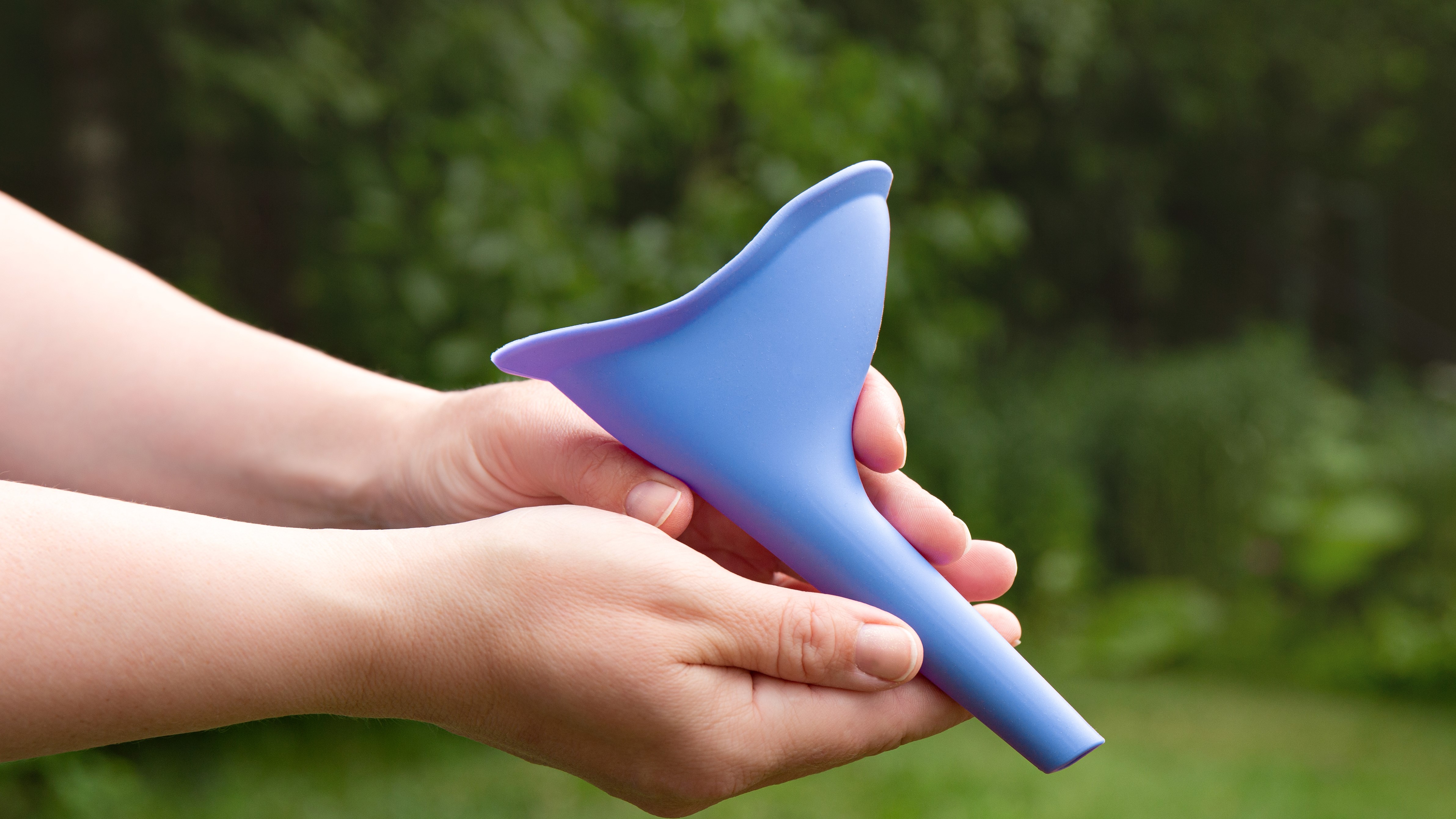Communing with nature can do wonders for the soul. Unplugging and taking the time to explore and appreciate the natural beauty around you can be a needed reset. As a woman, this might intrigue you, but parts of the quintessential rustic camping might be less desirable. Going days without a shower and digging a latrine for the bathroom might make you turn down a camping invite. You may think, “How do you even go to the bathroom outside? Do I need a Shewee?”

Before you say no to the experience, it’s important to understand there are a few different options when it comes to camping. There are different levels of “roughing it”, from tent camping to glamping to everything in between. Please keep reading for tips on comfort, hygiene, and gear recommendations to help your experience go as well as possible. There are some essentials you’ll want to pack to make your trip as comfortable as can be.
1. Medication Can Ensure Comfort
Even if you’re camping for the weekend, it’s vital to prioritize your health by ensuring you have your necessary medications. Create a checklist of your prescribed medications, supplements, or over-the-counter remedies that you may need during your outdoor adventure. This should include birth control, allergy medicine, pain reliever, and antibacterial gel. Pack them in a waterproof container or airtight bag to protect them from the elements.
Walking through the woods and sleeping on the ground can be rough on your body, so it’s best to be prepared. To that end, toss in a light and compact first aid kit to be on the safe side if you take daily medications, and set up a reminder system to help you track your dosages amidst the distractions of nature. By proactively managing your medication needs, you’ll be better prepared to fully enjoy the beauty around you and make the most of your trip.
2. Hygiene Isn’t as Complicated as You Think
When nature calls while you’re in essence, what is a gal to do? You don’t want to drop trow and bare it all to the world and trail. For discreet urination, many avid female hikers, campers, and even skiers use the Shewee. It’s a device that allows females to urinate while standing, and you can keep your pants intact. It’s a funnel and tube you hold against yourself and point your liquid down and away. It comes with a carrying case so you can store it after rinsing it off.
So, that covers number one, but what about number two? When managing bowel movements in the wilderness, choose a location at least 200 feet away from water sources and dig a small hole (6-8 inches deep). Do your business, bury it carefully, and pack used toilet paper in a sealable bag to keep the environment clean. Always sanitize your hands afterward. You might consider using a portable camping toilet for added comfort.
And what about showers? Pack some soap that follows a leave-no-trace standard for natural hiking and camping. You can then wash yourself in streams or, if lucky, a shower house at a campground. There are also portable showers and rinse kits if you want to pack those. That all depends on your camping style and how much you want to carry. Just know there are options to stay clean, healthy, and comfortable.
3. The Right Gear Makes a Big Difference
While there’s a lot of gear necessary for camping, sleeping, sitting, and seeing are some major priorities. Sleeping outdoors can be cause for concern if you haven’t done it before, but this is where the right gear matters. If you’re in a tent just for the weekend or in a camper, a mattress or air mattress can be nice — and could save your back. If you’re looking for a more traditional experience, invest in a quality sleeping bag. Pay attention to the size, fit, and temperature rating. A cot and sleeping pad can also add extra cushion.
Camp chairs are another item where you should prioritize quality. After hiking, cooking over an open flame, and enjoying nature, having a comfortable place to relax can make a difference. Look for camp chairs that offer ergonomic design and ample cushioning. The last thing you want is to spend your evening sitting on an uncomfortable chair that leaves you sore. There are many cool features nowadays, too. You can choose chairs that recline, rock, or hold a six-pack.
Headlamps, lanterns, and flashlights are important for any camping or outdoor adventure, as they greatly affect your safety and comfort, especially in low-light conditions. When choosing lights, you’ll want something durable, water-resistant, and battery-operated (unless you pack a portable charger). Look at the number of lumens offered, too, which measures the brightness of a light. For general campsite tasks, 100-200 lumens may be sufficient, but activities like night hiking or fishing require 300 or more. Adjustable brightness settings can be handy. Also, if you hate bugs, you’ll want a red light setting to avoid attracting them.
Remember to Have Fun
No matter where or how long your adventure is, researching can make it a better experience. Think through your level of roughing it before going. Talk to other ladies as well to learn their list of dos and don’ts. Try out different products at camping stores to see what you like.
The more remote your camping plans, the more pre-planning you’ll want to do, too. Not having a project can be dangerous. Understand the length of time, shelter, and water availability. A little pre-planning can eliminate stressors. Having your gear situation and a plan in place lets you relax and enjoy the adventure out in nature.
